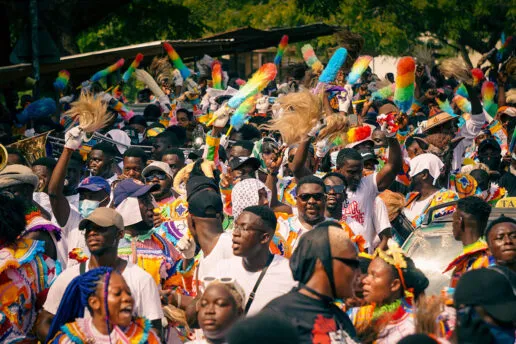About
This theme examines how ‘nature recovery’ is defined and governed at multiple scales across diverse landscapes, how its costs and benefits are distributed, and what lessons this holds for promoting equitable and restorative human-nature relations. The initial focus will be on case study landscapes in the UK and Ghana supporting a range of land uses, including conservation, recreation and the production of food and fibre for commercial and subsistence use.
One research strand examines the political ecology of nature recovery at multiple scales, with a strong emphasis on the design and implementation of participatory approaches to co-creating and managing nature recovery. This includes analysis of existing and proposed public and private policies, laws and standards for public participation in nature restoration and land use decision-making and how they intersect with grassroots and business recovery initiatives and local landowner engagements.
As part of this work, we will explore complementarities and tensions between scientific knowledge, including that generated by this project, and local knowledge of nature and place, and how different knowledge claims are used, accepted or rejected, and by whom. We will also examine how nature recovery efforts shape equality of access to land, nature and finance across diverse social groups.
Our second strand examines different cultural understandings of nature and how these configure the possibilities for nature recovery. We anticipate that successful strategies for nature recovery will require broad cultural support from landowners, farmers, citizens, and their representatives. But we know that these groups often disagree about what nature is and how it ought to be managed. We will investigate how culture and group identity shape different patterns of behaviour that impact nature recovery. We are especially interested what digital media tell us about popular understandings of nature and in the potential of digital technologies to enable new forms of environmental citizenship.
Related News Articles
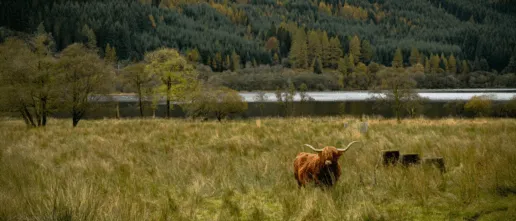
From Urgency to Participation: It is important that nature recovery initiatives can ‘slow down’ to embrace community engagement & local knowledge.
Allegra Bundy, MSc student, reflects on the participatory process and key findings of her dissertation project, ‘From Urgency to Participation: Navigating Complexities in Nature Recovery in the Scottish Highlands’.
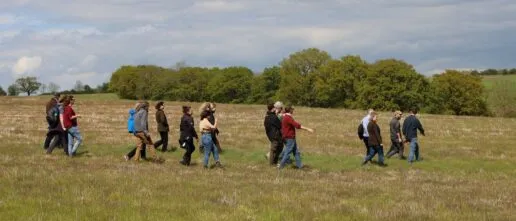
Stakeholder Engagement Best Practice – Nattergal’s Ten-Point Approach
Effective stakeholder engagement is key to improved land-use decision-making, natural resource management, and achieving mutually beneficial outcomes for individuals, communities, and places.

How do perceptions of risk shape nature finance?
Caitlin Hafferty, Postdoctoral Researcher in the Centre, has recently been awarded an Oxford Policy Engagement Network (OPEN) Fellowship to conduct a project on understanding the impact of risk and uncertainty on high-integrity nature markets in the UK.
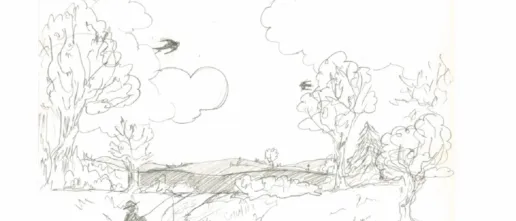
Art and Nature in The Leys
A free, drop-in family-friendly event led by researchers Martha Crockatt and Mattia Troiano, developed in collaboration with Natasha Summer, a local community champion, and in partnership with the Oxfordshire African Caribbean Multicultural Society. It was funded by the Economic and Social Research Council’s Festival of Social Science. The aim of the event was to engage […]
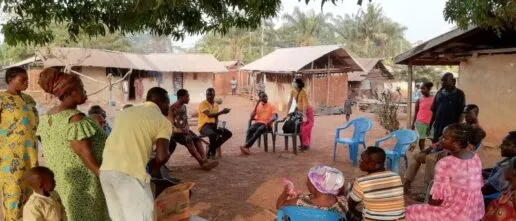
Ghana’s Landscape Approach to REDD+: Is it decentralizing or recentralizing power?
Since 1889, local communities in Ghana have been struggling to achieve equitable control over their land and forest resources
Projects

Healthy Ecosystem Restoration in Oxfordshire
Developing the local Oxfordshire landscape as a case-study, nature-recovery laboratory and community of practice.

Assessing urban ecosystem composition and function to understand pathways towards equitable, Nature-smart cities
Through considering the ecosystem composition and functioning of Greater London, I hope to provide not only a comprehensive analysis of nature of in cities as it currently stands, but I also hope to provide routes to improving nature in these areas based on this.

Participatory governance of nature recovery and Nature-based Solutions.
Co-designing knowledge, evidence, and practitioner guidance for engagement processes that enhance the delivery of benefits for people, nature, and climate

Risky Nature Recovery
How can the governance of nature recovery embrace uncertainty to support transformative change?

The landscape aesthetics of nature recovery
How do perceptions of what the landscape ought to look like enable and constrain nature recovery in the UK?
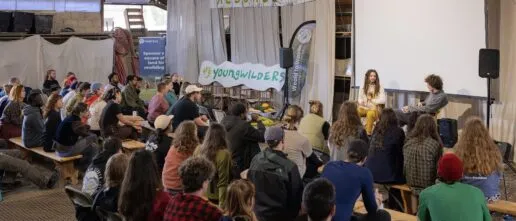
Youth-led Nature Recovery
What are the barriers and opportunities for young peoples' ability to lead and act on nature recovery in the UK, and how can their participation be supported?
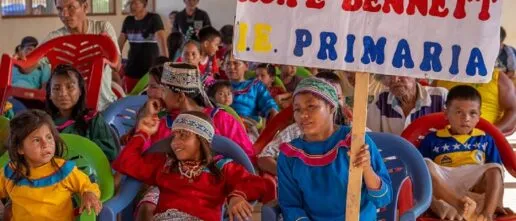
Research at the interface of indigenous and Western science
Empirically applying an intercultural interdisciplinary mapping methodology “Non Oñamboan Joi” for assessing nature recovery potential in the Amazon.

Community values in accessible urban green spaces and planning: An Oxford case.
Investigating community values in accessible urban green spaces and assessing the equity of urban green governance across different socio-economic areas of Oxford.

Rewilding The City
Investigating urban rewilding initiatives, from top-down governance schemes to local community-based practices.

Understanding nature recovery paths and ecosystem functioning through forests health assessments
Quantifying the health of forests ecosystems by means of earth observation can aid in understanding nature recovery paths and ecosystem functioning

Innovative methods to connect and communicate between disciplines
Establishing evidence-based methods to bridge scientific fields for nature recovery.
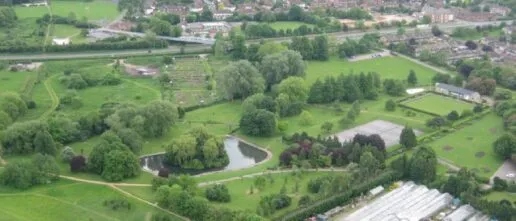
Equitable distribution of nature-rich accessible green space: An Oxfordshire case study
Investigating the distribution of freely accessible green space in Oxfordshire in relation to socio-economic status to inform local green space planning.

Oxford Policy Engagement Fellowship: Developing a green infrastructure equity tool
A collaborative project with Plymouth City Council and the Woodland Trust to develop and trial a tool to identify neighbourhoods that are socioeconomically deprived and lack access to green space.
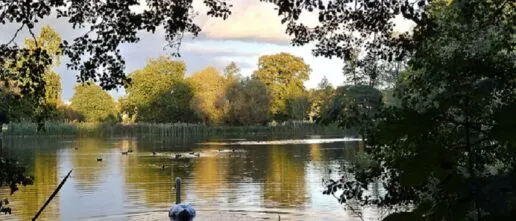
Pioneering Nature-Positive Pathways: Organisational Approaches for delivering Nature Recovery
Understanding the methods and actions required by large organisations to deliver effective and equitable biodiversity outcomes in line with achieving global nature recovery goals.

Social ecological mapping for nature recovery
Developing social ecological maps for land use planning, investment and inclusive decision-making.
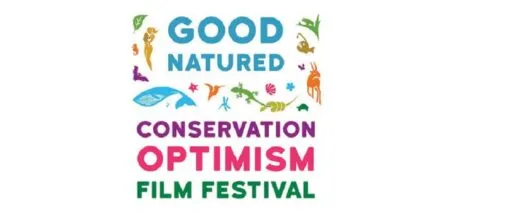
The Good Natured Conservation Optimism Short Film Festival
An inspiring and empowering collection of short films showing stories from across the natural world
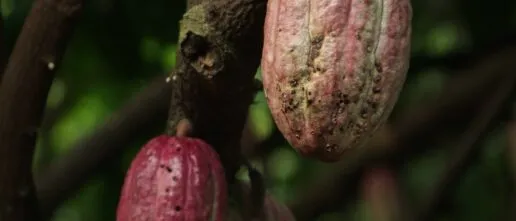
Institutional innovations for nature recovery
A power-sensitive and multi-level analysis of institutions involved in pursuing landscape scale nature recovery and their intersection with questions of equity and justice in the UK and Ghana.
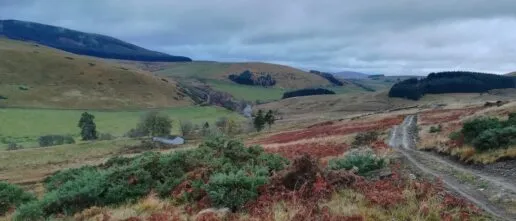
Bunloit and Beldorney
Exploring the ecological and social dimensions of nature recovery.

The knowledge politics of measuring forests
What are the social, ecological and economic effects of measuring and valuing forests in Scottish nature recovery?

Database of Scottish nature recovery projects
We will build a database of all nature recovery projects and organisations in Scotland.

eDNA, environmental knowledge and biodiversity governance
In what ways are novel environmental DNA techniques changing how environments are monitored, understood and governed?
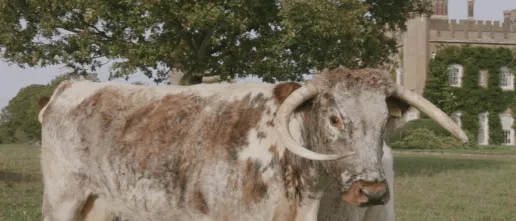
British Rewilding in a Global Frame
Examining worldwide influences on rewilding, in Britain and beyond, to clarify broader environmental transformations

Engaging schools with nature
How can we engage secondary schools and teenagers with nature?
Related Outputs
Tropical forests in the Americas are changing too slowly to track climate change
Species are expected to shift their ranges as the climate changes, but shifts may not occur fast enough, especially for immobile species such as plants. Two papers in this issue assess the degree to which plant species are tracking climate change in the American tropics, where data availability has constrained inference.
Equity in unilateral value chain policies: A monitoring framework for the EUDR and beyond
Unilateral value chain policies have recently emerged as a key strategy of international land use governance. They’re part of a broader trend towards trade-based environmental policies, from corporate due diligence to sustainability certification and trade moratoria, that has been critiqued for reinforcing inequities in global trade. Such critique has been heightened by the current rise […]
Equity in Urban Green Space Access and Governance: an interdisciplinary Oxford case study.
Martha Crockatt and Mattia Troiano have been exploring equity of urban greenspace in Oxford communities. Here they present findings from their interdisciplinary research, which has used a wide range of methods to explore the implications of adopting a recognitional equity approach when thinking about access to greenspace and participation in its governance, culminating in a […]
Optimizing restoration: A holistic spatial approach to deliver Nature’s Contributions to People with minimal tradeoffs and maximal equity
Delivery of ecosystem restoration plans can lead to gains and losses of environmental and societal benefits, disproportionately impacting different groups of society. The tradeoffs and inequity can potentially be large when considering plans focused on a single benefit. Such information is especially lacking in tropical countries, such as India, that must balance local societal needs […]
The political ecology of cocoa agroforestry and implications for equitable land use in rural Ghana.
The relevance of cocoa agroforestry is widely discussed in debates on sustainability transition in cocoa, especially in the context of ending hunger and poverty among cocoa farmers. Whereas this has led to multiple cocoa agroforestry investments by NGOs, governments, and cocoa and chocolate companies in West and Central Africa, a notable gap exists in the […]
Understanding human-nature relations: How can we foster more collaborative and integrated solutions for tackling climate and biodiversity issues?
Achieving meaningful progress in nature recovery, conservation, and biodiversity protection demands more than technological fixes – it requires addressing the social, cultural, and political dimensions of environmental challenges. In this thought-provoking panel discussion, leading experts explore how integrating social sciences such as geography, anthropology, sociology, psychology, and economics can provide transformative solutions to the climate […]
Why we need transformative scenarios for people and nature: Building capacities to imagine safe and just futures for all life on Earth
Laura Pereira There is general scientific agreement on the need for transformative change in order to address the systemic poly-crisis of climate change, biodiversity loss and growing inequalities globally. However, what this transformative change is and what the future looks like if we are able to achieve it remains opaque. It is important to recognise […]
Unpacking the politics of Nature-based Solutions governance: Making space for transformative change
Pre-print paper on the politics of Nature-based Solutions governance for transformative change. This paper finds that dominant framings can end up undermining, rather than supporting, the changes that are needed for transformation to happen. Techno-centric and market-oriented approaches, perceptions of risk and uncertainty, and “democracy washing” risk perpetuating power imbalances and superficial participation. Making space […]
Understanding actors’ power through conflict dynamics: Insights from small-scale mining on cocoa farms
Artisanal and small-scale gold mining at the forest-farm nexus remains a contentious issue due to the diversity of actors and competing interests surrounding it. Using the actor-centered power (ACP) approach, it has been theorized that actors leverage power resources, combining coercion, (dis-)incentives, and dominant information, to influence less powerful actors to act against their preferred […]
The UK nature finance ecosystem: status and opportunities for scale
This report reviews the current state of nature finance in the UK, the ecosystem of actors involved and the enabling environment to scale finance, including the role of blended finance. The report acts as a primer to inform future research toward policy recommendations.
The Great Intergenerational Robbery: A Call for Concerted Action Against Environmental Crises
In June 1992, the Earth Summit in Rio de Janeiro established the UNFCCC and CBD, marking the start of global efforts to tackle climate change. These environmental goals later became part of the broader agenda to combat poverty and hunger through the Sustainable Development Goals.
Response to the consultation from the Department for Energy Security and Net Zero on the implementation of the UK government’s principles for voluntary carbon and nature market integrity
Comments from the Leverhulme Centre for Nature Recovery
Contrasting carbon cycle along tropical forest aridity gradients in West Africa and Amazonia.
Tropical forests cover large areas of equatorial Africa and play a substantial role in the global carbon cycle. However, there has been a lack of biometric measurements to understand the forests’ gross and net primary productivity (GPP, NPP) and their allocation. Here we present a detailed field assessment of the carbon budget of multiple forest […]
Embedding nature recovery in the Levelling-up and Regeneration Bill Agile Initiative Research Brief
This research brief compiles evidence from the academic literature to demonstrate the vital role that nature can plan in securing health, well-being, and socio-economic benefits for the deprived communities targeted by the levelling-up programme.
Large-scale social surveys on people and nature relations: Report on the state of the art in the UK
Jasper Montana, Clare Ferguson and Tom Marshall Collecting reliable and consistent data about people’s relationship with the natural environment is likely to be crucial to effective policy delivery by governments. Social surveys are a prominent tool in delivering this insight. In the UK, surveys on people’s relationship with nature are run by government bodies, nongovernmental […]
